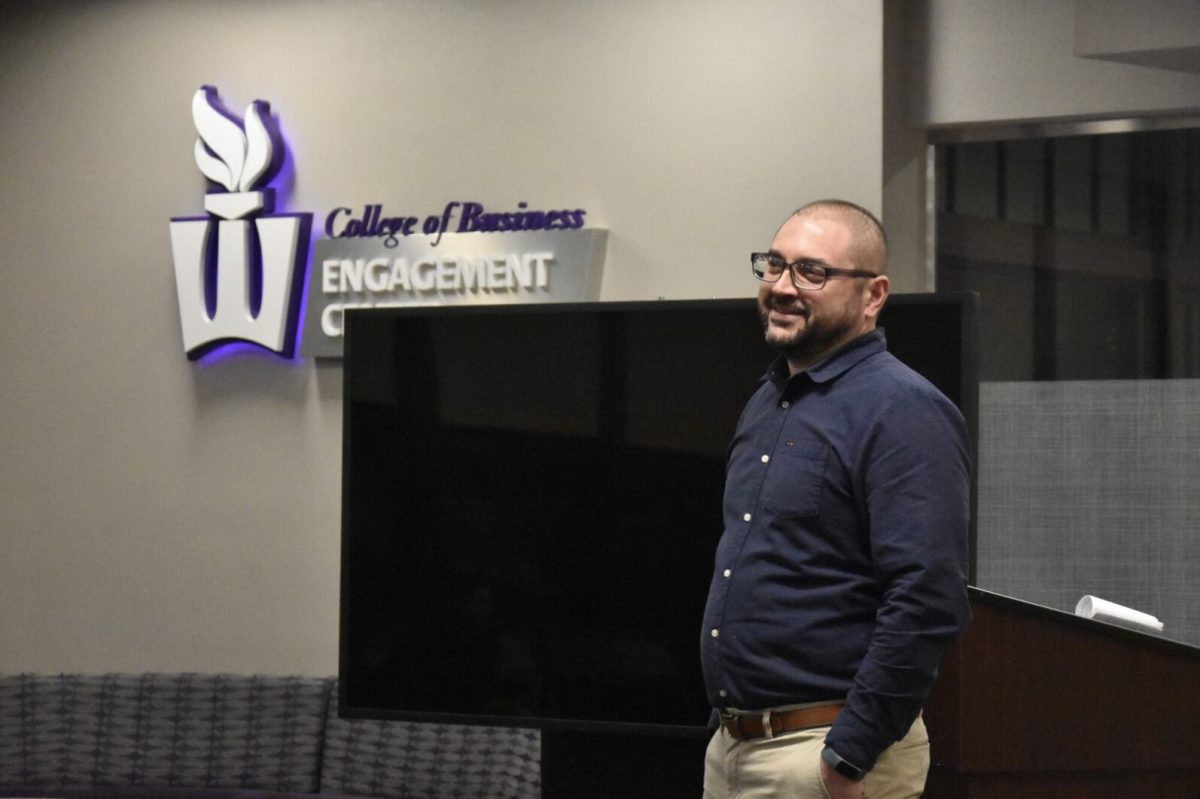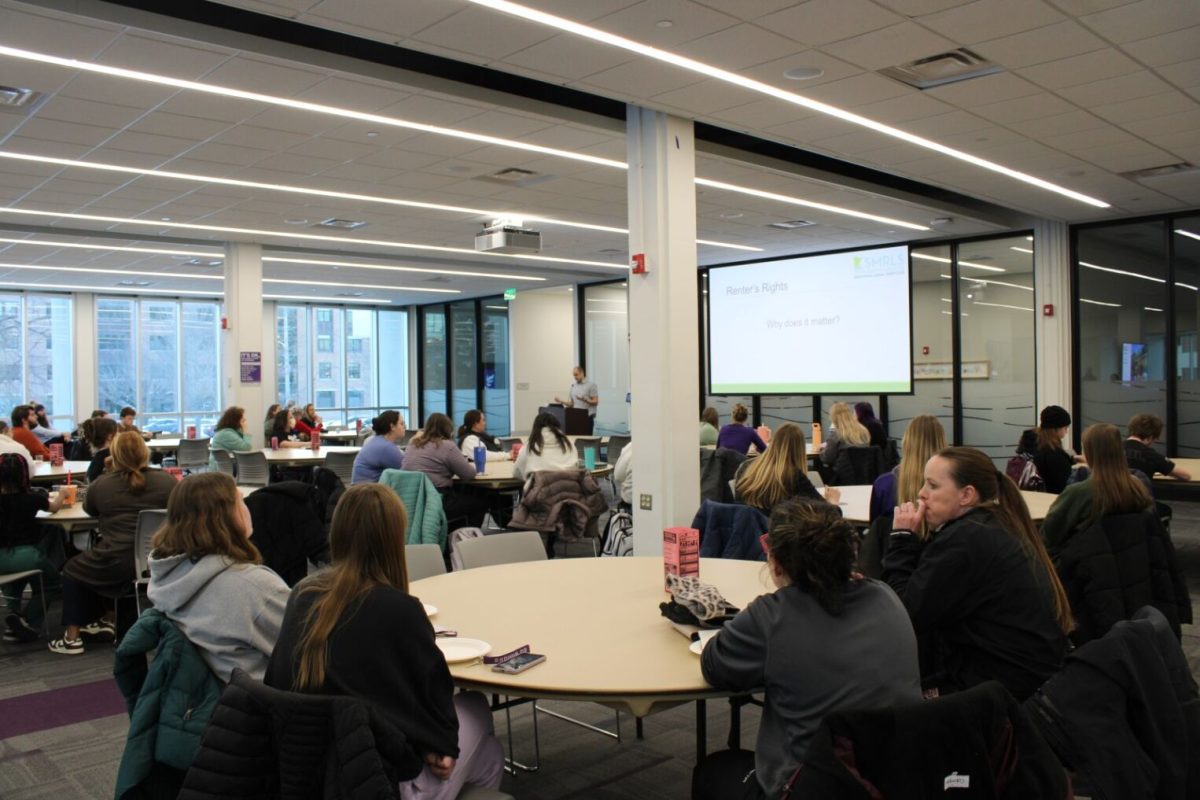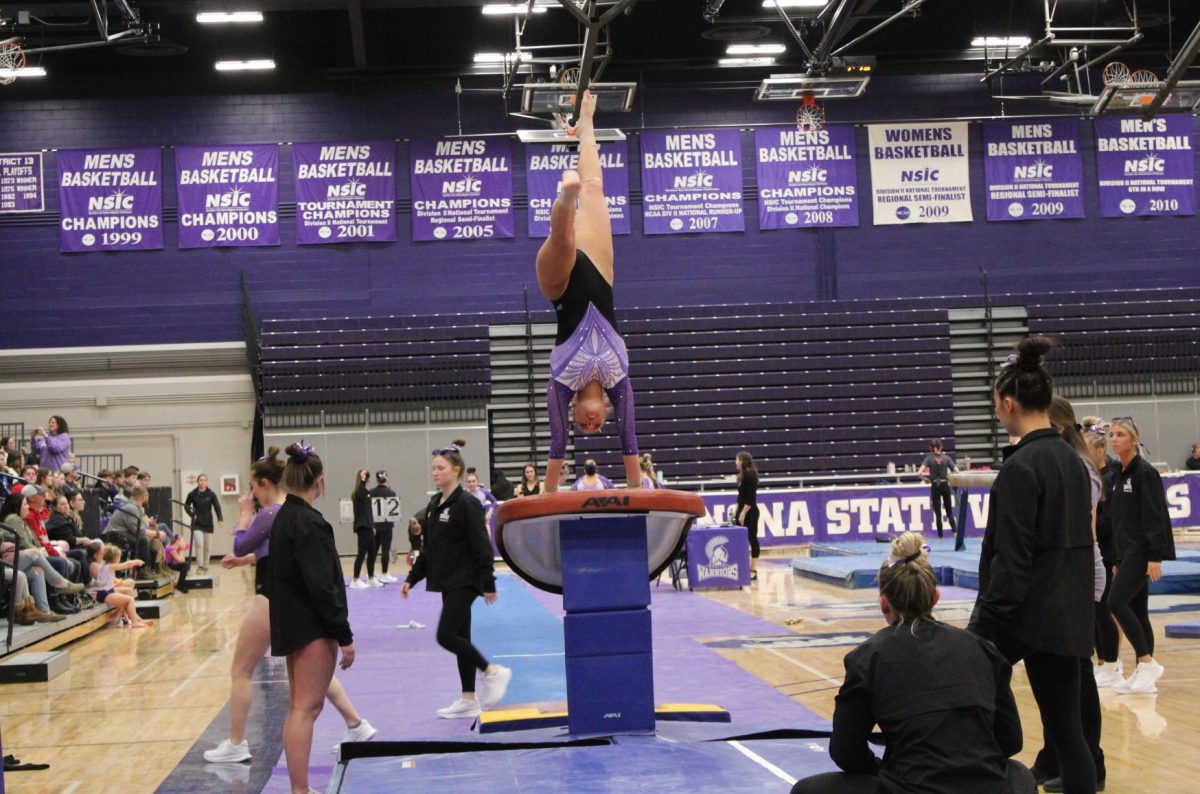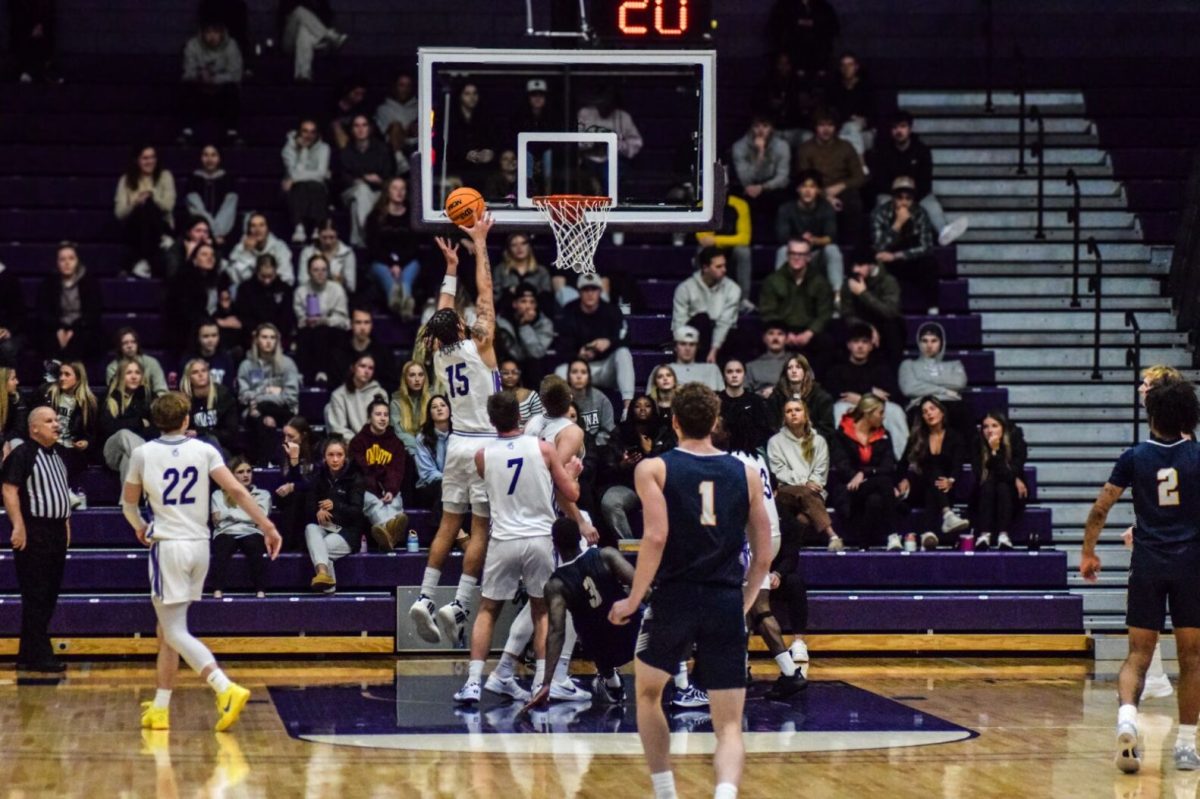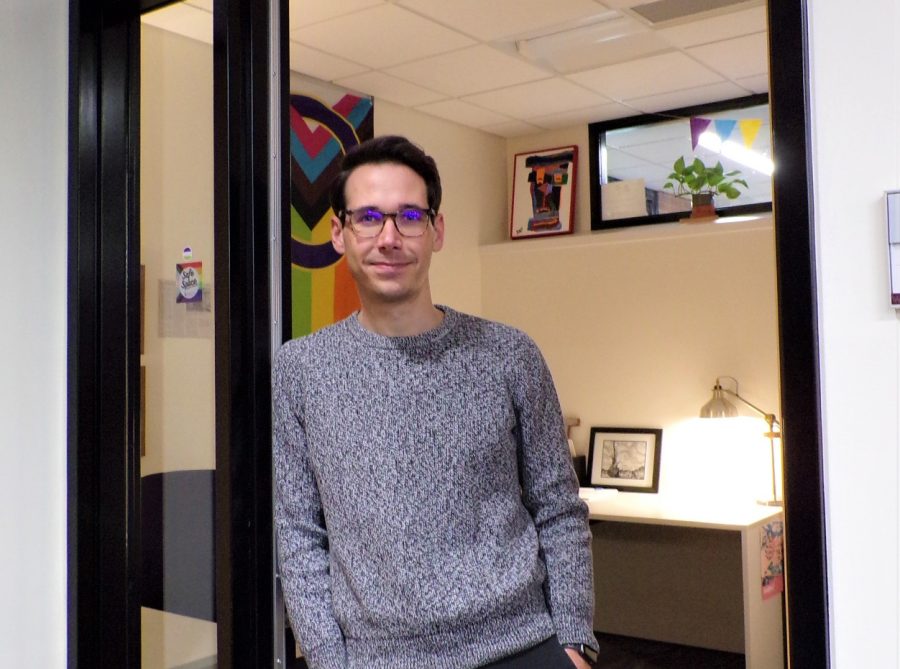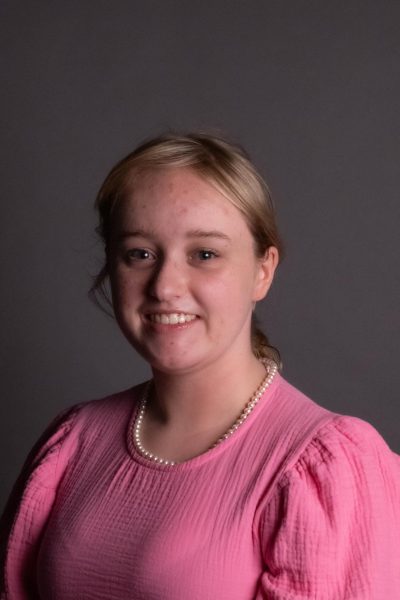Tyler Treptow-Bowman Profile: Examining Safe Spaces in Winona
Tyler Treptow-Bowman has served for the past five years as Winona State University’s Intercultural & Completion Coordinator for the Office of Equity & Inclusive Excellence.
October 19, 2022
Following the events of the past two years (such as PragerU: Amala Ekpunobi coming to Winona State twice, the pandemic and more), Tyler Treptow-Bowman has stepped up to help create a safe and welcoming environment for students to thrive on campus even with speakers who deny their existence.
Treptow-Bowman has worked at Winona State University for five years now but spoke about how the last two years have been more challenging.
“These past two years have been considerably more challenging to navigate with both student interactions as well as advocating for our needs with administration on-campus comparing to previous years,” Treptow-Bowman stated.
Treptow-Bowman explained their thoughts on the recent PragerU event on campus, stating that the event does not align with Winona State’s mission.
“There are categorically unacademic components to what PragerU stands for, as well as some of the topics that the speaker espouses. I know that they say that there is research behind them but based on my academic background and areas that I am privy to, there is no academic background to the understanding that there are only two genders besides fictional texts,” Treptow-Bowman stated.
Treptow-Bowman explained his feelings of the safety that Winona State has to offer, stating that there are no safe spaces.
“I don’t think that there are safe spaces, and I know that that’s hard for somebody who runs the safe space program to say,” Treptow-Bowman said.
On the Winona State website, Safe Space training is described as teaching participants how to be more intentional in creating welcoming spaces for any LGBTQIA+ individuals. This includes students, faculty and staff. The Safe Space program is helmed by Treptow-Bowman from the Equity and Inclusive Excellence Office and Prism (formerly known as Full Spectrum).
“Do I believe that everyone who has signed the safe space contract can fully provide an affirmative environment for all LGBTQ+ students? No. I believe that there are complications and nuances there that is hard to manage,” Treptow-Bowman said.
Treptow-Bowman explained that the safe space program has been difficult to rebrand because of the name recognition.
Winona State itself has not done a good job at keeping safe spaces safe, according to Treptow-Bowman.
“For a school that talks so much about inclusion, equity, being good people and bettering this world, it’s not lost on me that there are unsafe places on this campus,” Treptow-Bowman stated.
Dr. Jonathan Locust Jr., the Associate Vice President of Equity and Inclusive Excellence, spoke about his experience working with Treptow-Bowman.
“We all have expertise in our own areas, but that doesn’t mean we don’t learn from each other. We can have conversations based on our own experiences growing up that provides deep levels of learning because of our differences,” Locust said.
Locust continued, sharing how Treptow-Bowman played a huge role in institutionalizing safe spaces, along with from students in Prism.
Treptow-Bowman also talked about “brave-spaces,” a concept about spaces which can mean prioritization of victims being kind to their oppressor.
“How do you provide kindness to somebody who wishes you were erased from the world? I can’t find it in my heart. If there is somebody saying that my identity isn’t real, there is no kindness in my heart for that,” Treptow-Bowman said.
The University of Maryland defines braves spaces as, “a classroom environment that acknowledges the challenges that both students and faculty have when attempting to have a discussion around difficult and/or sensitive topics such as race, power, privilege and the various forms of oppression for the purpose of learning.”
Treptow-Bowman explained that he has known other faculty members that want to speak out, but fear of the consequences holds them back.
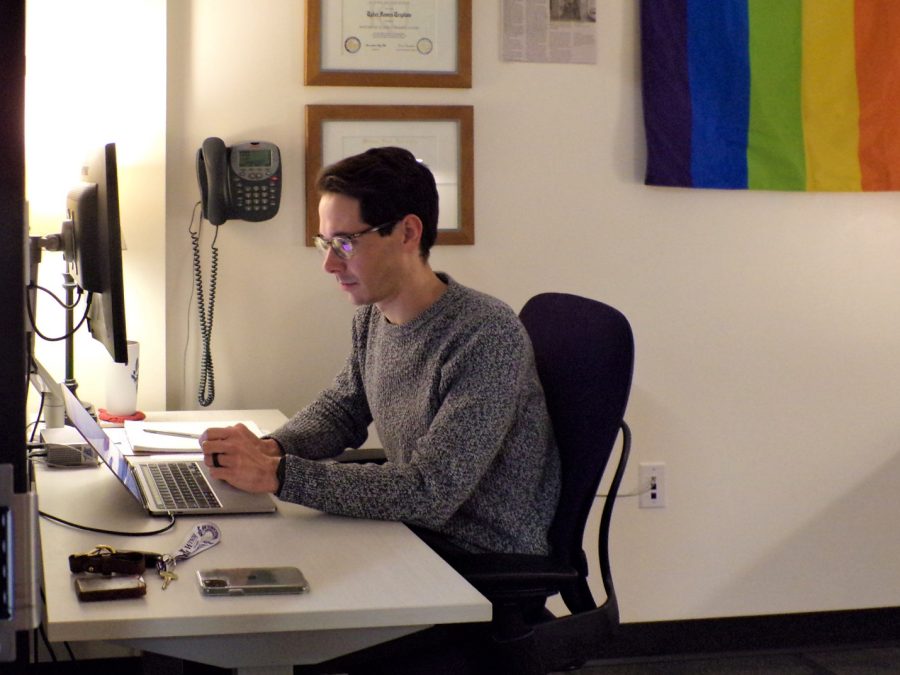
“I have been asked to do a profile in semesters past and have declined every time because I was under a probationary contract. I think that there are probationary employees or pre-tenure employees that are scared to speak up at this campus for fear of retaliation in some sense,” Treptow-Bowman said.
Treptow-Bowman, who recently received tenure at Winona State, described their experience as a roller coaster.
“Some days are really good, which I keep a file either digitally or physically to remind myself of those good days. But considering the past two years, there are days that I don’t want to come to work. Right now, at WSU it seems like a very unsafe place for LGBTQ+ students, specifically for transgender, nonbinary and gender nonconforming identities,” Treptow-Bowman stated.
Treptow-Bowman added that some days it does not seem like LGBTQ+ students are fully respected at Winona State.
“It’s difficult to look at the anti-harassment and discrimination policy and see how much harassment and discrimination thrives on campus, with no response to it. It’s also difficult to understand how I am impacted by that, but then also paid to respond to student concerns regarding it,” Treptow-Bowman said.
Treptow-Bowman said that before his hire, the institution had not previously hired someone intentionally for LGBTQ+ services., Treptow-Bowman explained how his identity impacts his perspective of working at Winona State.
“There is no aspect of my job that is not influenced by my queerness in some way. It informs my outlook on this university and informs the work I do. I can’t remove that part of myself when I do my job. It can be incredibly rewarding as well as incredibly draining,” Treptow-Bowman said.
Treptow-Bowman explained why they chose Winona State to work at, and why they continue to choose Winona State.
“I was a student at Winona State as an undergraduate, so I decided to come back [as a faculty member] because it felt familiar and I knew what areas needed improvement,” Treptow-Bowman said.
Treptow-Bowman explained how he has helped Winona State become a safer and more inclusive environment.
“Most of the circumstances that I would relate typically to helping students is mostly the triage situations, where students come to us, and everything is falling apart, and they don’t know what to do. This has to do with navigating the institution, or they have been hurt in some way, or they feel like they need to transfer,” Treptow-Bowman said.
Treptow-Bowman explained what an Intercultural and Completion Coordinator is and how crucial their work is for all students, but specifically students that have been systemically marginalized.
“At the end of the day there are two of us in the office that provide comprehensive services for students. We know that there are certain students that don’t get the quality service that they are entitled to, which is more systemic than it is personal, it’s just part of the nature of higher education in the United States,” Treptow-Bowman said.



